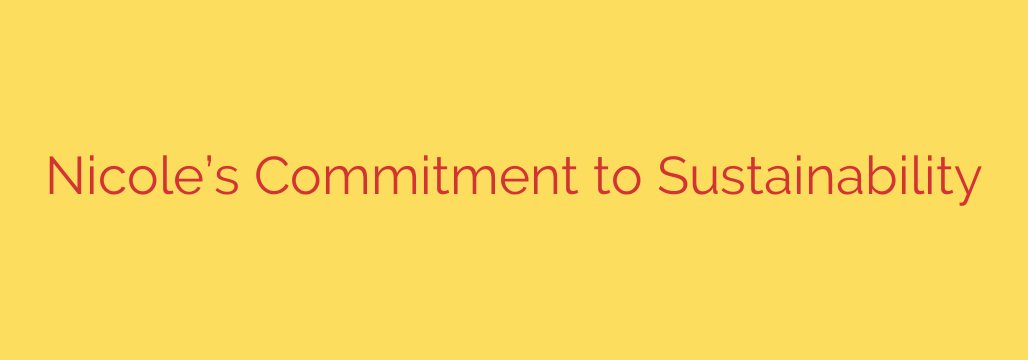
Building a Greener Future: A Blueprint for Sustainable Business
In today’s world, sustainability is far more than a marketing buzzword; it’s a fundamental responsibility. For businesses, embracing a truly sustainable model means embedding environmental and ethical considerations into every aspect of their operations. This commitment goes beyond surface-level changes, requiring a deep-seated dedication to protecting our planet and its people.
A comprehensive approach to sustainability is built on several key pillars, each one crucial for creating real, lasting impact.
From a Greener Source: The Importance of Sustainable Materials
The journey of any product begins with its raw materials. A core principle of sustainability is the conscious selection of resources that minimize environmental harm. This involves moving away from conventional, resource-intensive materials and toward greener alternatives.
For example, this could mean using organic cotton, which is grown without harmful pesticides, or utilizing innovative textiles made from recycled plastics. The foundation of any sustainable product is the material it’s made from. By prioritizing recycled, renewable, and biodegradable materials, a business can significantly reduce its ecological footprint right from the start.
Ethical Production: A Commitment to People and Planet
How a product is made is just as important as what it’s made of. An ethical and sustainable manufacturing process focuses on two critical areas: human welfare and environmental impact. This means guaranteeing fair wages, safe working conditions, and respectful treatment for every worker in the supply chain.
On the environmental side, it involves actively reducing water consumption, minimizing energy use through renewable sources like solar power, and properly managing waste and chemical outputs. True sustainability considers the entire supply chain, ensuring that both people and the environment are treated with respect.
Beyond the Box: Revolutionizing Sustainable Packaging
Product packaging is a major contributor to global waste, particularly single-use plastics. A forward-thinking sustainability strategy addresses this head-on by reimagining packaging from the ground up. This includes eliminating unnecessary plastic, using recycled and recyclable materials like FSC-certified cardboard, and exploring innovative compostable options.
The goal is to minimize waste and ensure packaging can be easily recycled, composted, or reused by the end consumer. This thoughtful approach extends a company’s environmental responsibility all the way to the customer’s doorstep.
Closing the Loop: Embracing the Circular Economy
The traditional “take-make-waste” model of consumerism is unsustainable. A circular economy offers a powerful alternative by designing products for longevity, repair, and reuse. This philosophy aims to keep resources in use for as long as possible, extracting the maximum value from them before they are returned to the biosphere.
Actionable steps include offering repair services to extend a product’s life, implementing take-back programs to recycle old items into new ones, and designing products that can be easily disassembled for recycling. A circular model aims to eliminate waste by keeping products and materials in use for as long as possible.
Radical Transparency: Building Trust Through Honesty
Finally, a genuine commitment to sustainability requires transparency. It’s not enough to simply implement green practices; businesses must be open and honest about their efforts, including their successes and their ongoing challenges.
This means clearly communicating sustainability goals, publishing progress reports, and seeking third-party certifications to validate claims. Transparency isn’t about being perfect; it’s about being honest and accountable on the journey toward sustainability. This builds trust with consumers and fosters a culture of continuous improvement.
A Shared Responsibility for a Sustainable Future
Building a sustainable business is a continuous journey, not a final destination. It requires a holistic approach that weaves together responsible material sourcing, ethical manufacturing, innovative packaging, circular design, and transparent communication. By committing to these principles, businesses can not only reduce their environmental impact but also lead the way toward a healthier, more equitable, and sustainable future for all.
Source: https://feedpress.me/link/23532/17108901/striving-for-sustainability-meet-nicole








